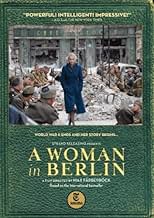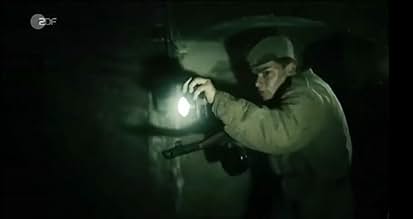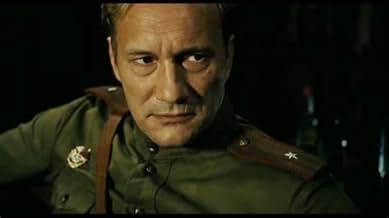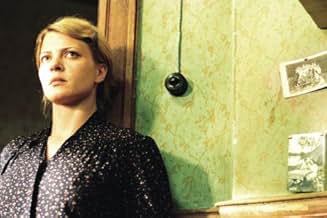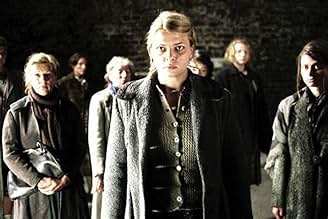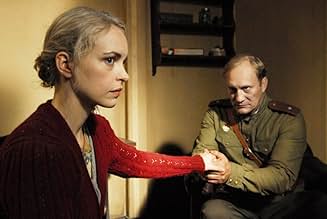IMDb RATING
7.0/10
7.2K
YOUR RATING
A woman tries to survive the invasion of Berlin by the Soviet troops during the last days of World War II.A woman tries to survive the invasion of Berlin by the Soviet troops during the last days of World War II.A woman tries to survive the invasion of Berlin by the Soviet troops during the last days of World War II.
- Director
- Writers
- Stars
- Awards
- 1 win & 4 nominations total
Evgeniy Sidikhin
- Major Andreij Rybkin
- (as Evgeny Sidikhin)
Viktor Zhalsanov
- asiatischer Rotarmist
- (as Victor Zhalsanov)
- Director
- Writers
- All cast & crew
- Production, box office & more at IMDbPro
Featured reviews
To begin with the end note: When the anonymous memoir adapted here ('Anonyma - Eine Frau in Berlin') was published in Switzerland in 1959, it was greeted with such outrage among Germans the author allowed no further editions; she of course never revealed her name. Here we are, fifty years later, and the material is still incendiary and hard to get your head around. It concerns events that are unspeakable and incomprehensible.
As played by the strikingly handsome, elegant Nina Hoss, "Anonyma" is an ash blond who can wear odds and ends as if they were couturier fashions, a journalist fluent in French and Russian, at home in Paris and London, who comes back from assignment to be in the Führer's capital for the final victory she still believes in. The Third Reich for her and her pals seems a time of freshness and energy for Germany. The war is just a blip on the horizon soon to be done with. She parties with fellow supporters of the Fatherland's great endeavor who toast the troops and boast that the buffoonish Russians will fall by the wayside. They don't, and when they invade Berlin and begin the wholesale raping of the German women, she chooses to mete out her favors selectively for her own protection and that of her neighbors in the apartment building. This is the story of how that happens.
When Berlin crumbles apartment dwellers are hiding in the basement, like ghosts; then, like condemned men and women given an uneasy reprieve, they return to living in the remnants of apartments. "Anonyma" moves in with a group of others in a large flat and turns over the studio she occupied with her absent soldier boyfriend Gerd (August Diehl), for whom she keeps a diary of what happens, to an unrepentantly Nazi young woman and the adolescent German soldier boyfriend she hides (Sebastian Urzendowsky), who is armed. This unwise gesture is the pistol we know will go off eventually, endangering everybody.
The film shows only two public events: the invasion, and the official German declaration that the Germans have surrendered Berlin. The period in between is the main focus of the diary and the film. It's not specified but it was about three months.
The film focuses on a handful of neighbors, who include ; two lively sisters (Joerdis Triebel, Rosalie Thomass), a strong-willed widow (Irm Hermann); an elderly bookseller (Katharina Blaschke); a liquor dealer (Maria Hartmann); a pair of lesbian lovers (Sandra Hueller, Isabell Gerschke); a refugee girl in hiding (Anne Kanis) and a stolid octogenarian (Erni Mangold). And there are more, not to mention a half dozen clearly defined Russians, including the high ranking officer's Mongolian guard.
It's a bit difficult to keep track of all these, and Woman in Berlin is best at making us feel close to the narrator and conveying a sense of the chaos and uncertainty when the invasion and the raping begin. There seems to be no control. It's hard to see that anything is going on. The Russians are just there, wandering free, and brutalizing the German women. When these women meet the question they ask each other is not whether but "How often?" Anonyma sleeps with various Russians, willingly and not. Protesting the violations and seeking a protective officer she first becomes involved with Anatol (Roman Gribkov), a pretty, frivolous man who turns out to be not a career soldier but a dairyman. He comes and goes and is no real help. She calls him "a gypsy." Then she finds a battalion commander, Major Rybkin (the excellent, charismatic Yevgeni Sidikhin), who is unresponsive when she confronts him boldly in front of a lot of Russian soldiers, and then comes around to find her. Unlike the Germans, she says later in her diary (which we see her constantly scribbling in pencil), the Russians appreciate an educated woman.
A strength of the film is that it alternates naturally between noise and violence, drunken celebration when Russians and Germans fraternize in the big apartment, and "love," which has lost its usual meaning, but lingers on. These extremes never seem overwrought or manipulative. Here's a time when in a film the fact that nothing makes sense, makes sense. The protagonist recognizes that in the eyes of many she is now a whore, but she questions what a whore is.
Marguerite Duras' screenplay for 'Hiroshima Mon Amour' is poetic and overwrought, ut in its rhythmic repetitions it strongly conveys a sense of the aftermath of trauma isn't found in the somewhat overlong 'Woman in Berlin,' which is simply about the confusion of day-to-survival in a world where morality is turned on its head. As Anonyma knew however and as we see in the film, the defeated must capitulate or die, and the invaders have suffered horribly too. One young soldier reconts in Russian, demanding that she translate to all present, how invading Germans brutally slaughtered all the children in his village while he watched. Even Andreij's wife has been killed by the Germans. And the film shows the range of the then Russian people, the Ukrainians, Caucasians, Mongols, who are to be the Soviet Union.
Though reviewers and commentators seem to think they know what all this material means and proclaim judgments if not on the protagonist, on the filmmaker, this is primarily an example of Germans taking hard looks at repressed material that formerly was too ugly to examine. This isn't an impassioned indictment or defense, but a movie that uses an extraordinary diary (only published in Germany in 2003) to present an admirably complex picture of a crazy time. If it is both remarkable in its focus and at times quite old fashioned in its methods, that's as good a way as any to get things across. The result is both specific and wide-reaching, because there's ample time to ponder a basic issue for civilians in wartime: what does it cost you to survive?
As played by the strikingly handsome, elegant Nina Hoss, "Anonyma" is an ash blond who can wear odds and ends as if they were couturier fashions, a journalist fluent in French and Russian, at home in Paris and London, who comes back from assignment to be in the Führer's capital for the final victory she still believes in. The Third Reich for her and her pals seems a time of freshness and energy for Germany. The war is just a blip on the horizon soon to be done with. She parties with fellow supporters of the Fatherland's great endeavor who toast the troops and boast that the buffoonish Russians will fall by the wayside. They don't, and when they invade Berlin and begin the wholesale raping of the German women, she chooses to mete out her favors selectively for her own protection and that of her neighbors in the apartment building. This is the story of how that happens.
When Berlin crumbles apartment dwellers are hiding in the basement, like ghosts; then, like condemned men and women given an uneasy reprieve, they return to living in the remnants of apartments. "Anonyma" moves in with a group of others in a large flat and turns over the studio she occupied with her absent soldier boyfriend Gerd (August Diehl), for whom she keeps a diary of what happens, to an unrepentantly Nazi young woman and the adolescent German soldier boyfriend she hides (Sebastian Urzendowsky), who is armed. This unwise gesture is the pistol we know will go off eventually, endangering everybody.
The film shows only two public events: the invasion, and the official German declaration that the Germans have surrendered Berlin. The period in between is the main focus of the diary and the film. It's not specified but it was about three months.
The film focuses on a handful of neighbors, who include ; two lively sisters (Joerdis Triebel, Rosalie Thomass), a strong-willed widow (Irm Hermann); an elderly bookseller (Katharina Blaschke); a liquor dealer (Maria Hartmann); a pair of lesbian lovers (Sandra Hueller, Isabell Gerschke); a refugee girl in hiding (Anne Kanis) and a stolid octogenarian (Erni Mangold). And there are more, not to mention a half dozen clearly defined Russians, including the high ranking officer's Mongolian guard.
It's a bit difficult to keep track of all these, and Woman in Berlin is best at making us feel close to the narrator and conveying a sense of the chaos and uncertainty when the invasion and the raping begin. There seems to be no control. It's hard to see that anything is going on. The Russians are just there, wandering free, and brutalizing the German women. When these women meet the question they ask each other is not whether but "How often?" Anonyma sleeps with various Russians, willingly and not. Protesting the violations and seeking a protective officer she first becomes involved with Anatol (Roman Gribkov), a pretty, frivolous man who turns out to be not a career soldier but a dairyman. He comes and goes and is no real help. She calls him "a gypsy." Then she finds a battalion commander, Major Rybkin (the excellent, charismatic Yevgeni Sidikhin), who is unresponsive when she confronts him boldly in front of a lot of Russian soldiers, and then comes around to find her. Unlike the Germans, she says later in her diary (which we see her constantly scribbling in pencil), the Russians appreciate an educated woman.
A strength of the film is that it alternates naturally between noise and violence, drunken celebration when Russians and Germans fraternize in the big apartment, and "love," which has lost its usual meaning, but lingers on. These extremes never seem overwrought or manipulative. Here's a time when in a film the fact that nothing makes sense, makes sense. The protagonist recognizes that in the eyes of many she is now a whore, but she questions what a whore is.
Marguerite Duras' screenplay for 'Hiroshima Mon Amour' is poetic and overwrought, ut in its rhythmic repetitions it strongly conveys a sense of the aftermath of trauma isn't found in the somewhat overlong 'Woman in Berlin,' which is simply about the confusion of day-to-survival in a world where morality is turned on its head. As Anonyma knew however and as we see in the film, the defeated must capitulate or die, and the invaders have suffered horribly too. One young soldier reconts in Russian, demanding that she translate to all present, how invading Germans brutally slaughtered all the children in his village while he watched. Even Andreij's wife has been killed by the Germans. And the film shows the range of the then Russian people, the Ukrainians, Caucasians, Mongols, who are to be the Soviet Union.
Though reviewers and commentators seem to think they know what all this material means and proclaim judgments if not on the protagonist, on the filmmaker, this is primarily an example of Germans taking hard looks at repressed material that formerly was too ugly to examine. This isn't an impassioned indictment or defense, but a movie that uses an extraordinary diary (only published in Germany in 2003) to present an admirably complex picture of a crazy time. If it is both remarkable in its focus and at times quite old fashioned in its methods, that's as good a way as any to get things across. The result is both specific and wide-reaching, because there's ample time to ponder a basic issue for civilians in wartime: what does it cost you to survive?
Although I was aware of the awesomeness of German cinema in the past decades, I was still pleasantly surprised by this film. The title of the movie implies a specific point of view - the plight of a woman trapped in Berlin during the last days of WW2. The movie is however far less black-and-white (metaphorically speaking, of course) than it could have been. It goes beyond a simplistic right/wrong attitude and instead puts the audience in a position to ponder how in a war atrocities escalate and feed on themselves in a typical "chicken and egg" problem. Even the fact that the book on which the movie is based was met with outrage when it was first published in the 50's is ultimately part of this chain.
There are more complex answers to why horrible things happen in a war, and in the world in general - and Europe has had its share of it - and this film manages to capture these complexities masterfully.
There are more complex answers to why horrible things happen in a war, and in the world in general - and Europe has had its share of it - and this film manages to capture these complexities masterfully.
War is not a pleasant experience. Those who follow the news know that there have been several of our own soldiers accused and prosecuted for rape and murder in Iraq. In all wars there are local citizens who prostitute themselves to feed their family. It is often hard to make a choice between honor and survival.
This is the story of German women at the end of WWII when the Russians have moved into Germany. They are, of course, raped and abused, as women often are by invading armies. The question then becomes, how best to survive. Anonyma (Nina Hoss) decides the best way is to find the best Russian officer to care for her in exchange for sex.
It is easy to see why the Germans and the Russians hated the book, upon which this film is based, when it came out after the war. They are not shown in a good light. That is no surprise. Soldiers usually do not come from Ivy League universities, but from farms and shops.
Nina Hoss is one of the very few women that can look splendid even in rags.
Oustanding film.
This is the story of German women at the end of WWII when the Russians have moved into Germany. They are, of course, raped and abused, as women often are by invading armies. The question then becomes, how best to survive. Anonyma (Nina Hoss) decides the best way is to find the best Russian officer to care for her in exchange for sex.
It is easy to see why the Germans and the Russians hated the book, upon which this film is based, when it came out after the war. They are not shown in a good light. That is no surprise. Soldiers usually do not come from Ivy League universities, but from farms and shops.
Nina Hoss is one of the very few women that can look splendid even in rags.
Oustanding film.
10hasosch
Max Färberböck, known to the world-wide audience since his "Aimee and Jaguar", shows in this newer film for once not the standard story of the bad Germans, who, deserving after what they have done, being Nazis, are liberated by the good Russians, the good Americans and the good Allies. It shows exactly the same experience that we all, who grew up in the East Block, had about our Russiand "friends". They came to rape, to destroy, to violate, to erase. It is a very interesting fact concerning mass psychology or perhaps better mass-psychosis that nobody normally speaks about the enormous amount of destruction done or caused by the liberators of end-World War II Europe. And nobody even mentions the Stalinist concentration camps. This is why we need films like "Eine Frau In Berlin".
However, in Färberböcks film, we see the Russians, "like animals, like pigs, an-alphabets, without culture" - as the Russian Major says it in his own words, he, who speaks, according to the main female character "a seldomly high-style Russian". Well, a little bit of "justness" had to be - not ALL Russians are like the "scum" (quotation from the movie) that we see. Interestingly, my Hungarian home-town had been bombed by Americans, but afterward the Russians came like vultures and pitched themselves into the ruins, what was female, was raped, what had been church or synagogue - was emptied and the treasures stolen, a subculture sneaking from the sou-terrain up to the ruins and even profiting from corpses and debris.
However, in Färberböcks film, we see the Russians, "like animals, like pigs, an-alphabets, without culture" - as the Russian Major says it in his own words, he, who speaks, according to the main female character "a seldomly high-style Russian". Well, a little bit of "justness" had to be - not ALL Russians are like the "scum" (quotation from the movie) that we see. Interestingly, my Hungarian home-town had been bombed by Americans, but afterward the Russians came like vultures and pitched themselves into the ruins, what was female, was raped, what had been church or synagogue - was emptied and the treasures stolen, a subculture sneaking from the sou-terrain up to the ruins and even profiting from corpses and debris.
ANONYMA - EINE FRAU IN BERLIN (A Woman In Berlin) is the painfully sensitive title of this exquisite film from writer/director Max Färberböck based on a once occult book by 'Anonyma' that has become a recent bestseller in Germany. It has the courage to tell the story of what it was like in Berlin as World War II was ending - the time of the Russian siege of the city just before and just after Hitler committed suicide, ending the horror of the Nazi regime. While many films have been made about the German populace and how they coped with the fall of their 'great Third Reich' country that was to rule the planet, few have been able to allow the audience to understand the brutalities of war on the people of Germany in so direct a fashion. It is a film that will haunt the viewer for a long time, a film that will restore some dignity to the German people who lived through it, not being part of Hitler's madness but being trapped in the ugliness that followed his fall.
Anonyma (Nina Hoss) is a journalist, a pretty woman living in the cellars and other hiding places while the Russians took over Berlin. She helps her fellow survivors of the bombing of Berlin, struggling for food and protection. The Russian soldiers, still angry with the gnawing hatred for the Germans from the Siege of Leningrad and the loathing of anything that exists in Hitler's Berlin, drink heavily and seek out the women from hiding to satisfy their insatiable lust. 'Berlin is a German whorehouse' and all women, from children to youngsters to elderly fraus are continually raped and beaten as part of the victors' rage. Anonyma speaks several languages including Russian and decides her only hope for survival is to align with the Commander of the troops, Major Andreij Rybkin (Yevgeni Sidikhin), believing that if she becomes his concubine she will be safe from the random raping by the rest of the soldiers. Their liaisons become more than outlets for the Major and the two gradually bond despite the horrors outside their rendezvous. They survive. Hitler commits suicide and the war is over and the two face the reality of returning to their previous pre-war lives...or can they?
Nina Hoss is brilliant in this difficult role and though the script allows her little to say, she conveys so much through her expressions that words are nearly unnecessary. Likewise, Yevgeni Sidikhin captures the dichotomy of emotional response his character must display, finding just the right balance between the conquering Russian soldier and the compassionate and vulnerable lover. The cinematography by Benedict Neuenfels captures the devastation not only of the buildings but also of the emotions of both sides of the participating groups and Zbigniew Preisner is responsible for the musical score that adds immeasurably to the drama. This is one of the great German films that took many years of maturing to make. It should be seen.
Grady Harp
Anonyma (Nina Hoss) is a journalist, a pretty woman living in the cellars and other hiding places while the Russians took over Berlin. She helps her fellow survivors of the bombing of Berlin, struggling for food and protection. The Russian soldiers, still angry with the gnawing hatred for the Germans from the Siege of Leningrad and the loathing of anything that exists in Hitler's Berlin, drink heavily and seek out the women from hiding to satisfy their insatiable lust. 'Berlin is a German whorehouse' and all women, from children to youngsters to elderly fraus are continually raped and beaten as part of the victors' rage. Anonyma speaks several languages including Russian and decides her only hope for survival is to align with the Commander of the troops, Major Andreij Rybkin (Yevgeni Sidikhin), believing that if she becomes his concubine she will be safe from the random raping by the rest of the soldiers. Their liaisons become more than outlets for the Major and the two gradually bond despite the horrors outside their rendezvous. They survive. Hitler commits suicide and the war is over and the two face the reality of returning to their previous pre-war lives...or can they?
Nina Hoss is brilliant in this difficult role and though the script allows her little to say, she conveys so much through her expressions that words are nearly unnecessary. Likewise, Yevgeni Sidikhin captures the dichotomy of emotional response his character must display, finding just the right balance between the conquering Russian soldier and the compassionate and vulnerable lover. The cinematography by Benedict Neuenfels captures the devastation not only of the buildings but also of the emotions of both sides of the participating groups and Zbigniew Preisner is responsible for the musical score that adds immeasurably to the drama. This is one of the great German films that took many years of maturing to make. It should be seen.
Grady Harp
Did you know
- TriviaThe source novel was virtually banned in West Germany when it was first published in the late 1950s. When it was republished in 2003, it became a huge bestseller and nationwide sensation in a reunified Germany.
- GoofsWhen Germany's surrender is announced, the Soviet troops start singing the "Alexandrov version" of their national anthem, adopted about a year earlier. That version had no lyrics until Stalin intervened, and the heavy fighting wouldn't have allowed the soldiers to learn them. They most likely sang the chorus of "The Internationale," an earlier, better-known version.
- ConnectionsFeatured in History: Anonyma - Die Frauen von Berlin (2010)
- How long is A Woman in Berlin?Powered by Alexa
Details
- Release date
- Countries of origin
- Official site
- Languages
- Also known as
- Anónima - Una mujer en Berlín
- Filming locations
- Production companies
- See more company credits at IMDbPro
Box office
- Gross US & Canada
- $294,014
- Opening weekend US & Canada
- $12,439
- Jul 19, 2009
- Gross worldwide
- $1,863,939
- Runtime2 hours 11 minutes
- Color
- Sound mix
- Aspect ratio
- 2.35 : 1
Contribute to this page
Suggest an edit or add missing content

Top Gap
By what name was Anonyma - Eine Frau in Berlin (2008) officially released in India in English?
Answer


